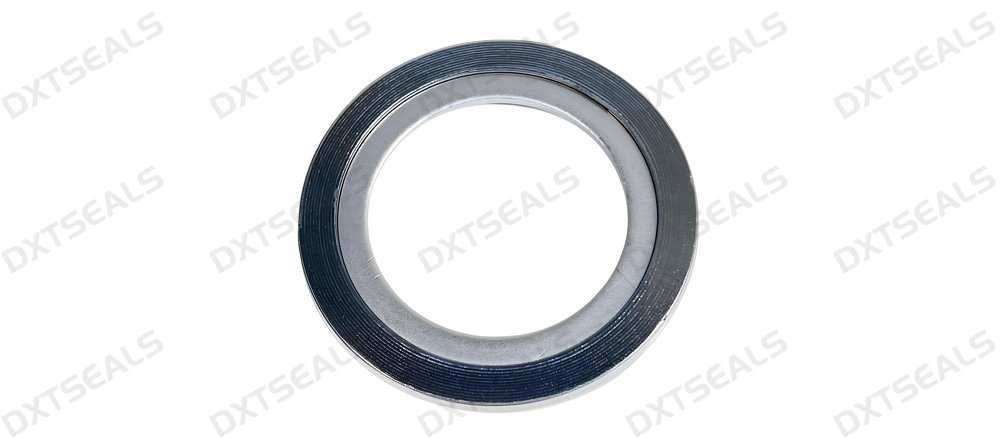Introduction
Flange gaskets play a vital role in chemical processing by providing reliable, leak-proof seals between flanged connections. In industries like pharmaceuticals, petrochemicals, and water treatment, it’s essential to choose the right gasket material to withstand the extreme conditions of temperature, pressure, and exposure to aggressive chemicals. In this article, we’ll explore the features and advantages of flange gaskets specifically designed for chemical processing, helping you understand how the right material can improve sealing performance, safety, and operational efficiency.
1. Features of Flange Gaskets for Chemical Processing
Chemical Resistance
Flange gaskets used in chemical processing must be able to resist a variety of aggressive chemicals, including acids, solvents, and bases. Materials like PTFE, graphite, and metal provide excellent resistance to chemical attack, ensuring that the gasket does not degrade over time due to exposure to harsh substances.
Temperature Tolerance
Chemical processes often involve high or fluctuating temperatures. Gaskets used in these environments must have excellent thermal stability. Materials like PTFE and graphite can withstand extreme temperatures, making them ideal for high-heat environments, while metal gaskets provide strength in both high and low-temperature conditions.
Pressure Resistance
Chemical processing systems operate under varying levels of pressure. The flange gasket must have the ability to maintain a reliable seal under both high and low-pressure conditions. Metal and spiral wound gaskets excel in high-pressure environments, while rubber gaskets offer excellent sealing capabilities in medium-pressure systems.
Durability and Longevity
In chemical processing, downtime can be costly, so it’s important that flange gaskets are durable and long-lasting. Materials like metal and graphite provide extended service life, even under harsh operating conditions. PTFE gaskets are also known for their longevity, especially in applications with highly reactive chemicals.
Sealing Efficiency
The primary role of a flange gasket is to prevent leaks and ensure sealing efficiency. Gaskets made from compressed fiber and rubber materials offer effective seals for moderate pressure and temperature applications, while materials like metal, PTFE, and graphite are better suited for more demanding environments.
2. Common Gasket Materials for Chemical Processing
PTFE (Polytetrafluoroethylene) Gaskets
PTFE gaskets are widely used in chemical processing due to their exceptional chemical resistance and non-reactive properties. PTFE is highly effective at preventing corrosion and is capable of withstanding aggressive chemicals like acids, solvents, and alkalis. It is also highly resistant to high temperatures, making it an ideal choice for demanding chemical applications.
Advantages of PTFE Gaskets:
- Excellent chemical resistance to a wide range of chemicals
- Non-stick and non-reactive, ideal for preventing contamination
- Thermal stability, resistant to both high and low temperatures
- Long-lasting with minimal maintenance
Applications in Chemical Processing:
- Chemical reactors
- Pharmaceutical production
- Food and beverage processing
- Semiconductor manufacturing
Graphite Gaskets
Graphite gaskets offer exceptional high-temperature resistance and chemical resistance, making them an excellent choice for chemical processing applications that involve extreme conditions. Graphite is also flexible and compressible, allowing it to form tight seals even on uneven flanges.
Advantages of Graphite Gaskets:
- High temperature resistance (up to 900°C or more)
- Excellent chemical resistance, especially to acids, alkalis, and hydrocarbons
- Flexible and compressible, ideal for uneven flanges
- Non-corrosive and can withstand harsh chemicals and extreme environments
Applications in Chemical Processing:
- High-temperature reactors
- Refining systems
- Chemical storage tanks
- Furnaces and heat exchangers
Metal Gaskets
Metal gaskets, often used in spiral wound or ring-type joint (RTJ) configurations, are ideal for high-pressure and high-temperature applications. These gaskets provide strong, reliable seals and are often used in environments where extreme pressure and temperature fluctuations are common.
Advantages of Metal Gaskets:
- High-pressure and high-temperature tolerance
- Durable and long-lasting, resistant to extreme stress and wear
- Versatile in sealing various industrial fluids and gases
- Low maintenance and long service life
Applications in Chemical Processing:
- Pipelines carrying chemicals or gases under high pressure
- Refining and distillation units
- Pressure vessels and heat exchangers
- High-temperature chemical reactors
Rubber Gaskets
While not as resistant to extreme chemical environments as PTFE or graphite, rubber gaskets still offer good performance in certain chemical processing applications. Materials such as Viton, Nitrile, and EPDM provide reliable sealing in applications with moderate temperatures and chemical exposure.
Advantages of Rubber Gaskets:
- Cost-effective solution for low to medium-pressure applications
- Good sealing performance against water, air, and gases
- Elasticity and flexibility make installation easier
- Chemical resistance to oils, fuels, and certain acids
Applications in Chemical Processing:
- Pumps and valves for chemical fluids
- Water treatment plants
- HVAC systems in industrial chemical plants
- General sealing for chemical systems
3. Choosing the Right Flange Gasket for Chemical Processing
Selecting the appropriate gasket material for chemical processing depends on several factors, including:
- Chemical exposure: PTFE and graphite gaskets are ideal for highly reactive chemicals.
- Temperature conditions: Metal, graphite, and PTFE gaskets are suited for high-temperature environments.
- Pressure levels: Metal gaskets are typically chosen for high-pressure applications, while rubber and PTFE gaskets are suitable for medium pressure.
- Environmental impact: Materials like PTFE offer environmentally-friendly sealing, especially in pharmaceutical and food industries.
Conclusion
Flange gaskets are critical components in ensuring the safe, efficient operation of chemical processing systems. Selecting the right material — whether PTFE, graphite, metal, or rubber — can significantly affect the performance, durability, and safety of your system. By understanding the chemical resistance, temperature tolerance, and sealing capabilities of each gasket material, you can make a well-informed decision to optimize your sealing solutions and protect your operations from leaks and contamination.

